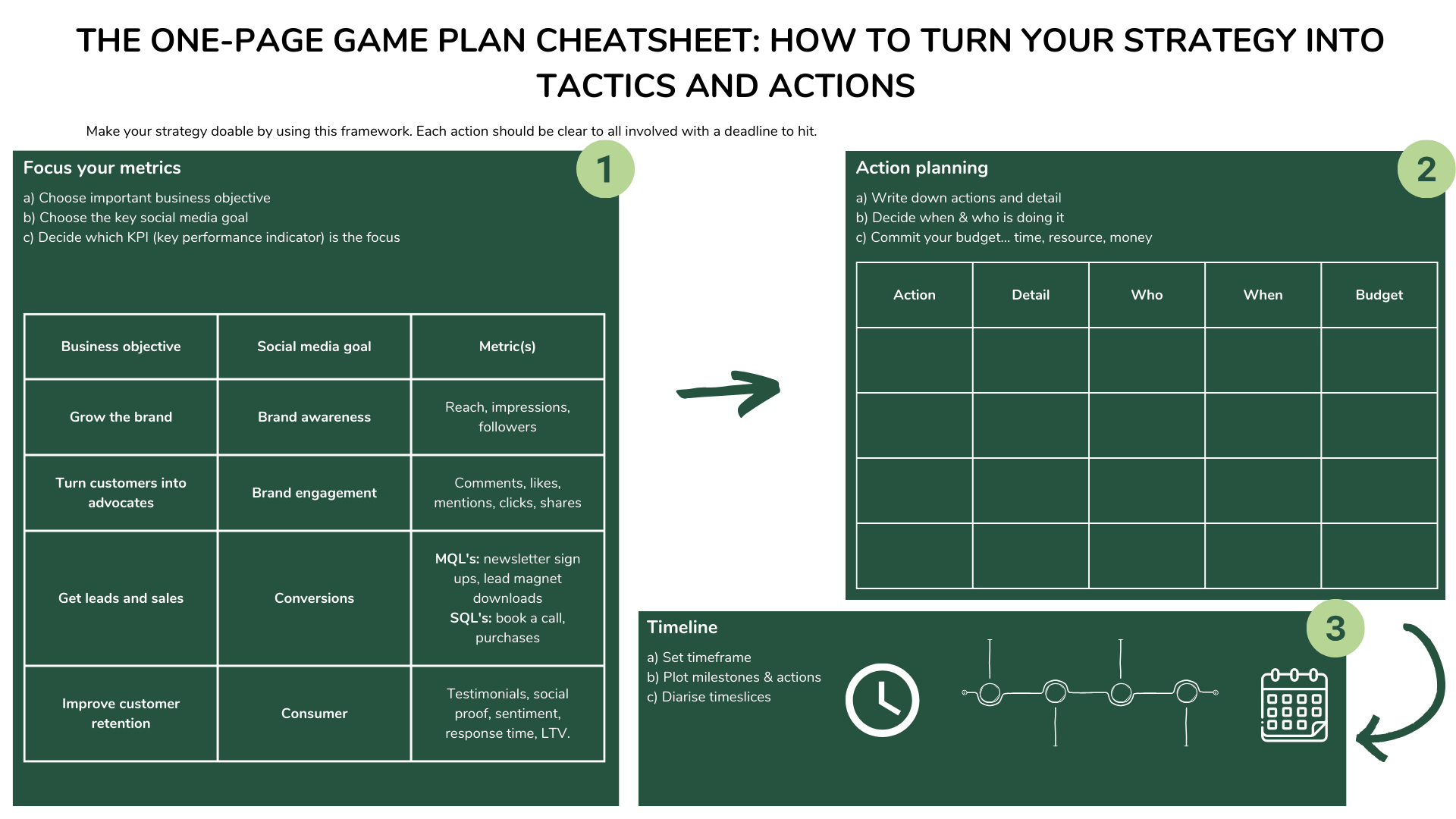Marketing research
Where do I start with my marketing journey?
Marketing Communications planning frameworks are nothing new, but they give you clarity and focus on who should receive your marketing communications. With so much noise and abundant digital marketing platforms, deciding where to focus your marketing efforts can take time. We often get clients that don’t have a plan, and they come wanting to focus their time and energy on platforms they won’t get a return on investment on as their clients are not there.
Doing your research prior is key. One academic proven framework that we like to work with our clients at SHOO is SOSTAC (2003 cited in Fill and Turnbull, 2019). SOSTAC stands for Situation, Objectives, Strategy, Tactics, Action, and Control. This marketing communications model provides a structured approach to developing, implementing, and managing marketing plans. In our blog, we'll dive into how you can leverage SOSTAC for marketing research and optimise your strategies for success. Firstly, let's break down this model:
What is SOSTAC?
SOSTAC is a strategic planning framework that offers a systematic way to create and manage marketing plans. It's versatile, adaptable to various industries, and beneficial for marketing research.
Here's a breakdown of each component:
- Situation analysis: Where are we now?
- Objectives: Where do we want to go?
- Strategy: How do we get there?
- Tactics: What tools and tactics do we use to implement the strategy?
- Action: Who does what and when?
- Control: How do we monitor performance?
Applying SOSTAC to Marketing Research
01 Situation Analysis
The first step in any marketing research initiative is understanding your current position. This involves gathering data on market conditions, customer behaviour, competitive landscape, and internal capabilities.
Essential tools and techniques for situation analysis include:
SWOT analysis:
Identifying strengths, weaknesses, opportunities, and threats.
PESTLE analysis: Assessing political, economic, social, and technological factors.
Customer analysis: Understanding customer demographics, psychographics, and behaviours.
Competitor analysis: Evaluating your competitors' strengths and weaknesses.
By conducting a thorough situation analysis, you can identify gaps in your knowledge and set the stage for informed decision-making.
02 Objectives
Once you have a clear understanding of your current situation, it's time to define your objectives. These should be Specific, Measurable, Achievable, Relevant, and Time-bound (SMART). Common objectives for marketing research might include:
- Increasing market share by a certain percentage
- Enhancing brand awareness and perception
- Identifying new market opportunities
- Understanding customer satisfaction and loyalty drivers
- Setting clear objectives provides direction and focus for your research efforts
03 Strategy
The strategy outlines the approach you'll take to achieve your objectives. It involves making high-level decisions about how to position your brand, target your audience, and differentiate from competitors.
Key considerations for strategy development include:
- Market segmentation:
Identifying and targeting specific customer segments.
- Value proposition: Defining what makes your product or service unique.
- Positioning: Crafting a compelling message that resonates with your target audience.
A well-defined strategy ensures that your marketing research is aligned with broader business goals.
04
Tactics
Tactics are the specific actions and tools you'll use to implement your strategy. In the context of marketing research, this might involve:
- Surveys and questionnaires: Collecting quantitative data from a large audience
- Focus groups: Gather qualitative insights through guided discussions
- Interviews: Conducting in-depth conversations with key stakeholders
- Secondary research: Analysing existing data and industry reports
Choosing the right tactics ensures that you gather the necessary data to support your strategy
05 Action
The action phase is where you execute your tactics. This involves detailed planning and coordination to ensure that everything runs smoothly. Key steps include:
- Timeline development: Create a schedule for your research activities.
- Resource allocation: Assigning tasks and responsibilities to team members.
- Data collection: Implementing your chosen research methods.
- Analysis: Interpreting the data and deriving actionable insights.
Effective execution is critical to the success of your marketing research.
06 Control
The final component of SOSTAC is control, which involves monitoring and evaluating the performance of your marketing research efforts. This includes:
- Key Performance Indicators (KPIs): Tracking metrics that align with your objectives.
- Regular Reviews: Conducting periodic assessments to ensure progress.
- Feedback Loops: Adjusting your strategy and tactics based on findings.
Control mechanisms help you stay on track and make data-driven decisions.
Conclusion
The SOSTAC framework
offers a robust approach to marketing research, ensuring that you systematically plan, execute, and evaluate your efforts. By applying SOSTAC, you can gain deeper insights into your market, make informed decisions, and ultimately drive better marketing outcomes. Whether you want to understand customer behaviour, explore new market opportunities, or refine your brand positioning, SOSTAC provides the structure and clarity needed to achieve your goals.
Embrace SOSTAC for your next marketing research project and unlock the potential of strategic planning and effective execution.






Sign up to our newsletter for the latest insider insights, top advice and more.
We will get back to you as soon as possible
Please try again later

Shoo Social Media
137 Bolling Road
Ben Rhydding
Ilkley Leeds
LS29 8PN
01943 430245
Info@shoosocialmedia.co.uk



